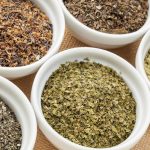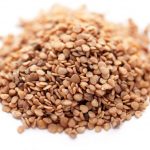
Sunflower – sources, health benefits, nutrients, uses and constituents at NaturalPedia.com
Monday, September 11, 2017 by Jhoanna Robinson
http://www.naturalnewsherbs.com/2017-09-11-sunflower-sources-health-benefits-nutrients-uses-and-constituents-at-naturalpedia-com.html

Sunflowers are hardy plants; meaning, they can survive freezing. They are also perennials. The really tall varieties of this plant need standing support – in the form of fences around them – unless they’re not that exposed to the elements; otherwise they have a tendency to get knocked down by the wind.
There are a lot of uses for each of the sunflower’s parts; its flowers, roots, and stem can provide a whole list of medicinal and practical purposes.

List of known nutrients
- Amino Acid
- Carbohydrates
- Carotenoids
- Choline
- Copper
- Dietary Fiber
- Iron
- Lecithin
- Magnesium
- Palmitic Acid
- Potassium
- Protein
- Selenium
- Sodium
- Stearic Acid
- Tocopherol
- Tryptophan
- Vitamin B9 (Folate)
- Vitamin E
- Zinc
A hundred grams of sunflower seeds contain 920 milligrams of potassium. Also, a 1/4 cup of sunflower sprouts has 16 g of total fat, six g of monounsaturated fat, six g of carbohydrates, six g of protein, eight g of polyunsaturated fat, two g of fiber, and two g of saturated fat, according to the United States Department of Agriculture Nutrient Database.
While sunflower spouts have a high fat content, the fat content is composed mainly of healthy unsaturated fats. The unsalted and dry kind also has a high vitamin and mineral content.
Medicinal uses for sunflower
Sunflower seeds contain an antioxidant called tocopherol, which is essential in fighting harmful free radicals that cause damage to otherwise healthy cells in the body and cause the growth of tumors that eventually lead to cancer.
Sunflower seeds’ anti-inflammatory properties can be attributed to their adequate vitamin E content.
Sunflower oils are good for the skin. They help retain water in the cells, thereby ensuring that your skin is properly moisturized.
Body systems supported by sunflower
Sunflower is good for the respiratory system. It can be used to address coughs.
Sunflower is good for the cardiovascular system. Ingesting its seeds can stimulate red blood cell production. It can also help with elminating the risks of incurring heart ailments and diabetes. This is due to sunflower’s rich folate content.
Sunflower is good for the skeletal system. Its seeds contribute to proper bone mineralization, ensuring the bones’ sturdiness and resistance against age-related bone disorders like osteoporosis. This is due to the copper in sunflower doing its role of linking collagen and elastin, thus ensuring bone and joint strength.
Sunflower is good for the endocrine system. It optimizes the function of different organs to produce hormones for the proper functioning of each body system. It also contains amino acids that regulate the production of serotonin, which is responsible for the body’s ability to alleviate tension and induce relaxation.
Sunflower is good for the digestive system. Its more-than-enough fiber content can prevent gastrointestinal disorders like constipation, colon cancer, hemorrhoids, and piles. To be guided properly, nutritionists recommend around 30 g of dietary fiber intake every day.
Sunflower is good for the nervous system. It improves memory and vision functions.
Sunflower is good for the circulatory system.
Ways to use sunflower
Sunflower seeds are usually dried. They take many forms and are usually turned into baked goods and meals. They can also be eaten raw or roasted. If you must snack between meals, snack on sunflower seeds, as they are a good energy food.
Sunflower oil can be used to fry food, used as makeup like lip balms, and can be added as ingredients to skin creams. It can also be used as dye pigment. At present, it is one of the most popular and well-used oils in the world.
Where to learn more
- Sunflower seeds: a good source of fiber, protein, vitamin E and more
- The top 20 foods for reversing type-2 diabetes
- Sunflowers, the honeybee plight and an enthusiastic advocate
- Five Superfoods for Super Skin
- Infusing Herbs in Different Mediums: Oil, Water, Alcohol or Honey
Summary
Sunflower is good for the cardiovascular, skeletal, endocrine, digestive, nervous, and circulatory systems.
Sunflower seeds’ anti-inflammatory properties can be attributed to their adequate vitamin E content.
Sunflower oils are good for the skin.
Sources include:
Tagged Under: Tags: Sunflower





